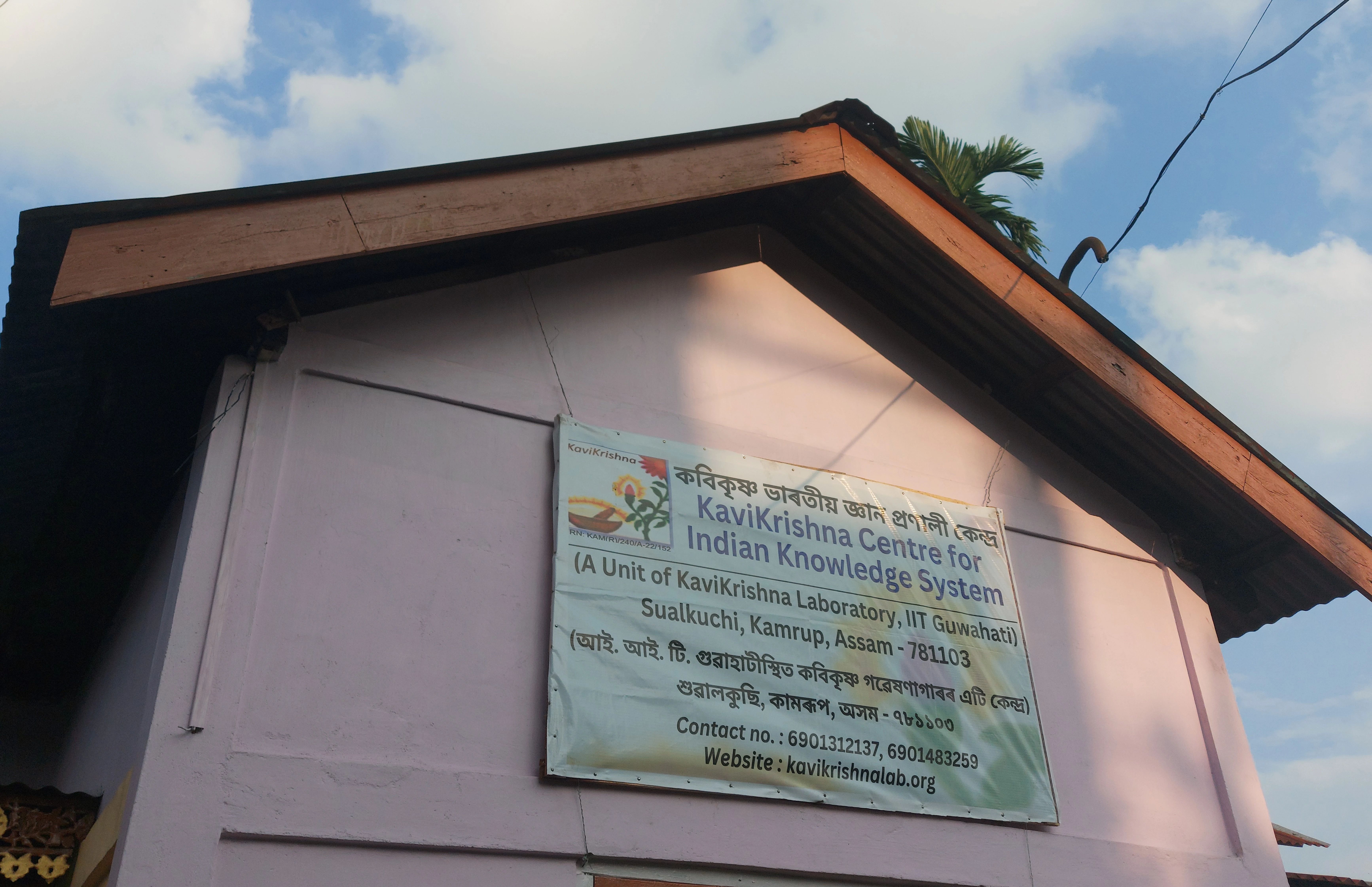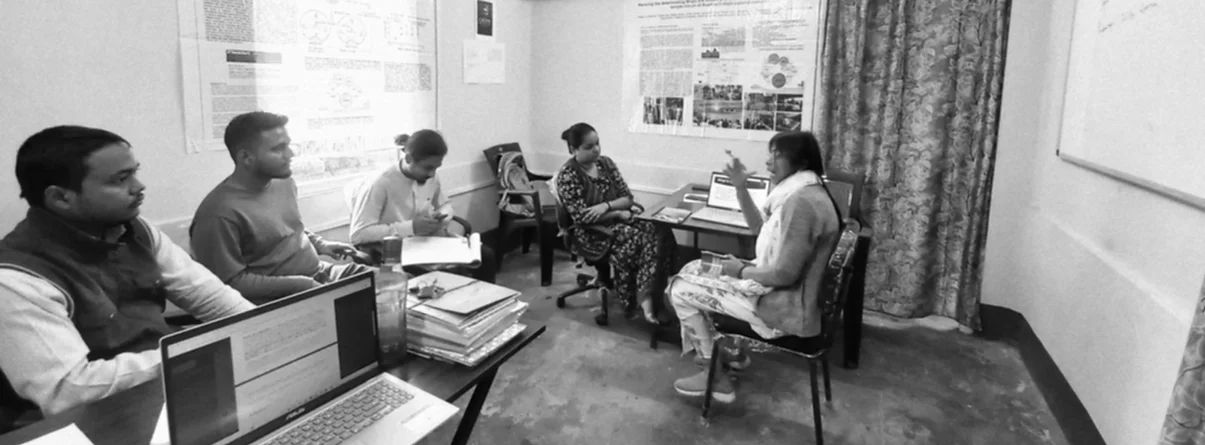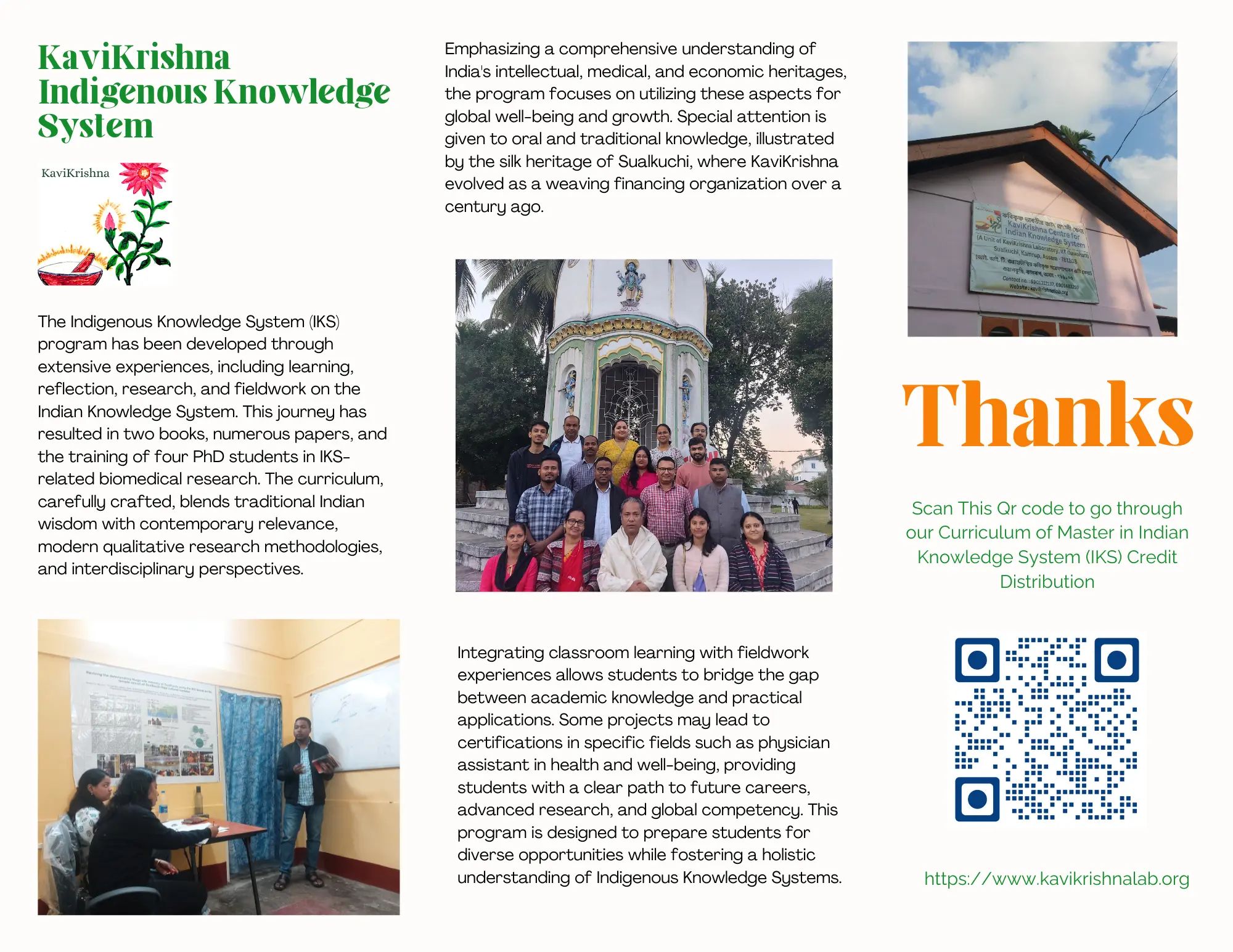Indigenous Knowledge System
The Indigenous Knowledge System (IKS) program combines traditional Indian wisdom with modern research methodologies. It emphasizes India's intellectual, medical, and economic heritages for global well-being.
The Indigenous Knowledge System (IKS) program has been developed through extensive experiences, including learning, reflection, research, and fieldwork on the Indian Knowledge System. This journey has resulted in two books, numerous papers, and the training of four PhD students in IKS-related biomedical research. The curriculum, carefully crafted, blends traditional Indian wisdom with contemporary relevance, modern qualitative research methodologies, and interdisciplinary perspectives.
Emphasizing a comprehensive understanding of India's intellectual, medical, and economic heritages, the program focuses on utilizing these aspects for global well-being and growth. Special attention is given to oral and traditional knowledge, illustrated by the silk heritage of Sualkuchi, where KaviKrishna evolved as a weaving financing organization over a century ago.
The program also delves into the modern application of IKS in globalization processes, covering integrated health, sustainable living, and environmental ethics. Through innovative fieldwork and capstone projects since 2018, students engage in hands-on research and real-world experiences. These projects aim to develop practical skills and deepen their understanding of theoretical concepts in IKS.
Integrating classroom learning with fieldwork experiences allows students to bridge the gap between academic knowledge and practical applications. Some projects may lead to certifications in specific fields such as physician assistant in health and well-being, providing students with a clear path to future careers, advanced research, and global competency. This program is designed to prepare students for diverse opportunities while fostering a holistic understanding of Indigenous Knowledge Systems.





